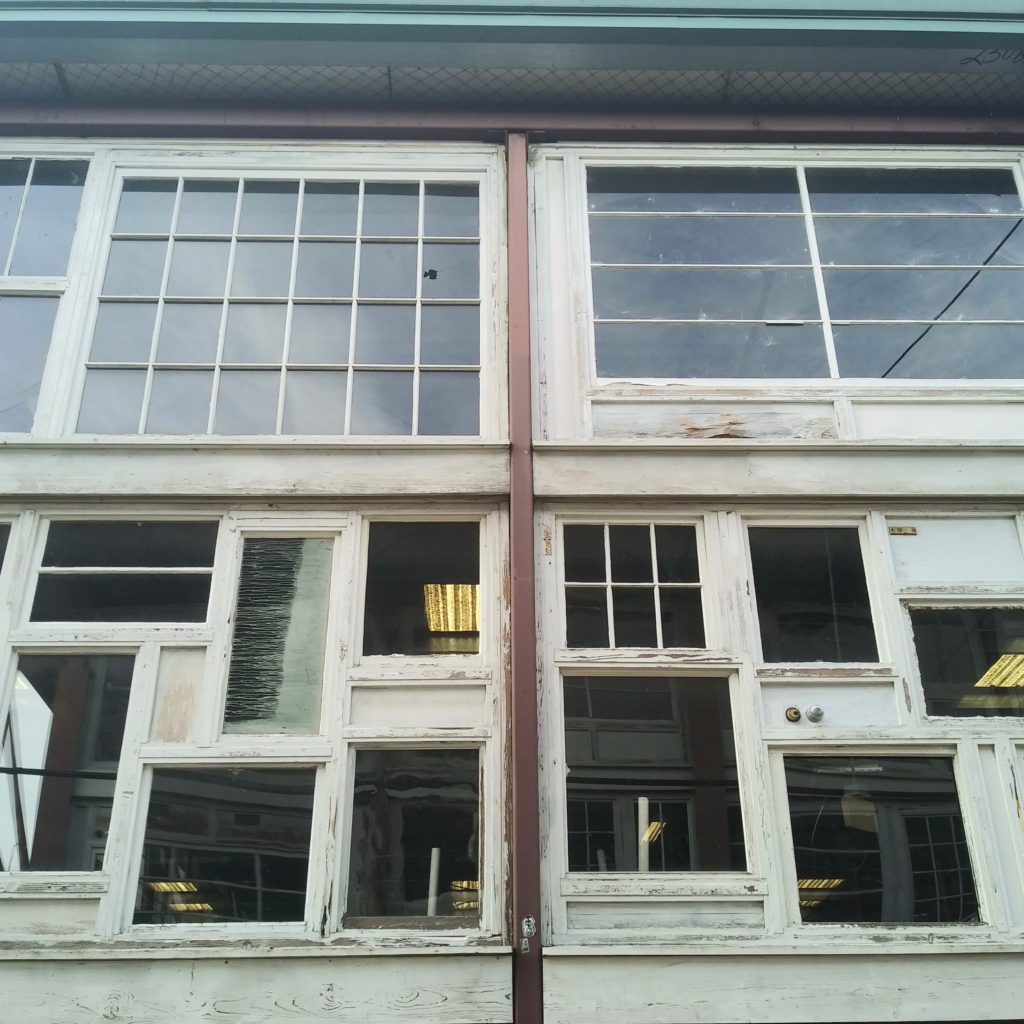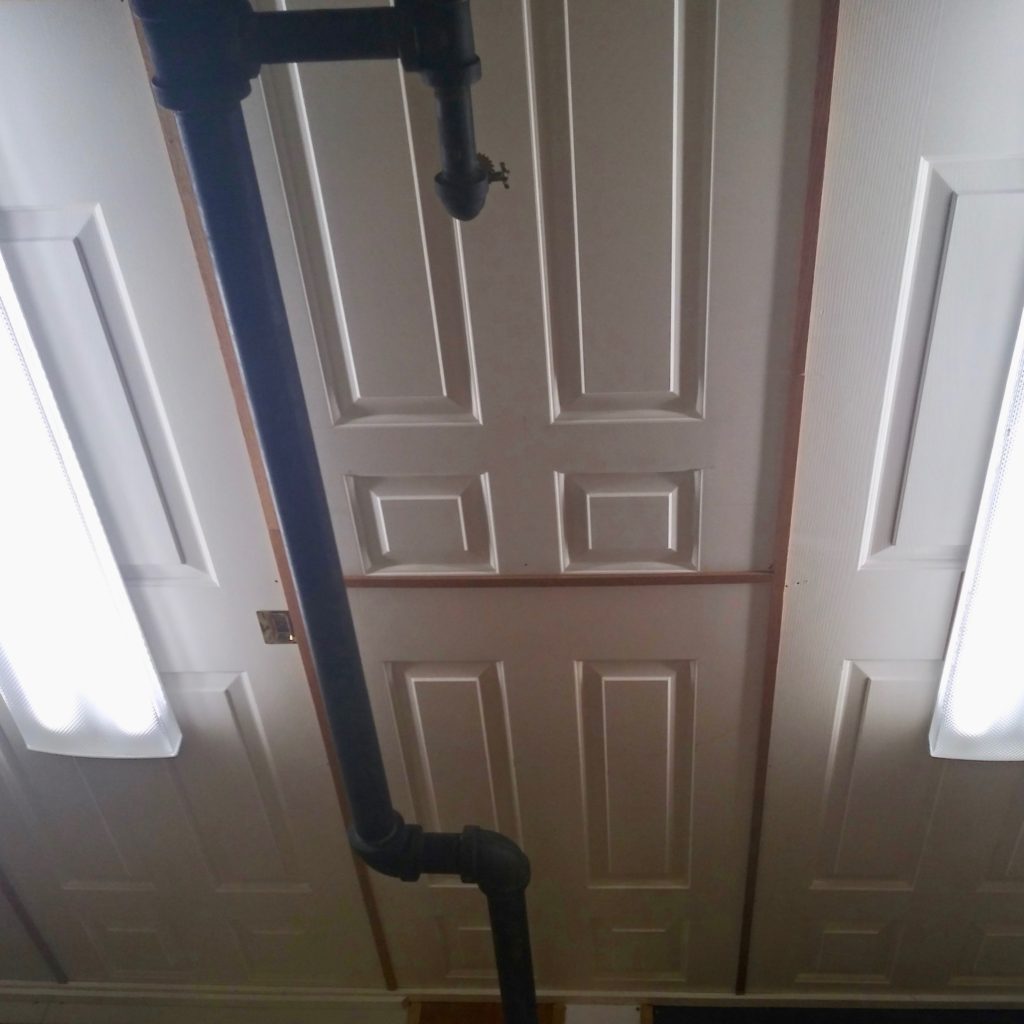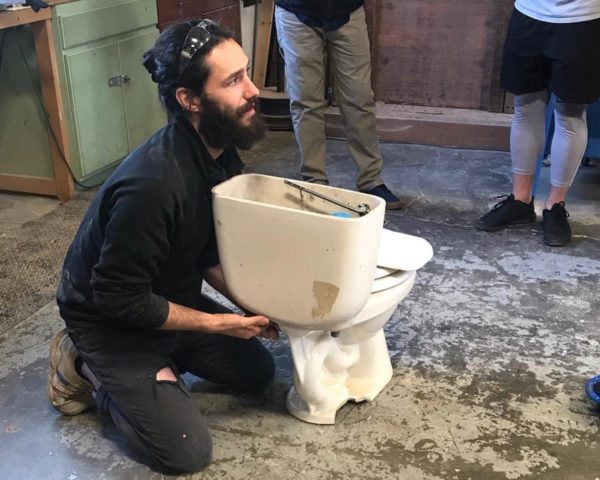ReBuilding Center Lead Instructor Sam Serling-Sutton shares his community wisdom.
The ReBuilding Center in North Portland is a community institution and resource for DIY-ers of all stripes. The retail space is worth a stroll-through, even if you don’t have a project in mind; their breadth of wacky salvaged inventory is likely to inspire creativity, and there’s no shortage of reuse ideas and information posted on every available surface.
For those seeking to level up their project skills, the ReBuilding Center Education Department offers a variety of classes targeting different handy skillsets, like plumbing, electrical, and woodworking. Scholarships are available for each class, and anyone with self-identified financial need is eligible to claim one.
We caught up with the RBC’s Lead Instructor Sam to learn more about their workshop vibe and ethos, what DIY repairers can gain from the RBC, and why their classes are truly for everyone.
PRF: So… what’s the scoop on the classes/workshop at the ReBuilding Center? What are y’all about?
SAM: We are here to serve the community’s needs, down to the level of needing a safe learning space to familiarize with tools and the workshop environment. Generally, people in our classes have zero experience with tools, which is perfect.
Every single person who works/has worked in our Education Shop began as a volunteer, which I think speaks to the quality and ethos of this space. It’s just an incredible community. Our students are typically not experts by any means when they first come to us and have often felt excluded or anxious about entering a shop. Our goals are to dispel those feelings of exclusion and anxiety, and exemplify how exciting, fun, and powerful these skills are. Many of our students get hooked after their first class and end up taking every one we offer, just so they can keep coming back.
Obviously re-use and recycling are the key to everything we do here at RBC. All of our class materials, with the exception of screws and glue, are reclaimed. A huge benefit of our classes is that we’re able to educate people about re-use. Whether that’s showing them the value and beauty of reclaimed lumber from our lumberyard, or how to repair your plumbing/electrical systems with recycled parts, which cost a fraction of what you’d find at a proper hardware store.
We essentially just emphasize empowerment through reuse.
PRF: What recycled plumbing and electrical repair parts can someone expect to find at the RBC?
SAM: So many. We have every depth of toilet you could hope to find in every color (I’ve even seen some urinals come in lately). We have a huge selection of sinks, faucets, supply lines, shower-heads, etc. I usually tell our plumbing students that the only thing they’ll really need to buy new is a wax ring. Pretty similar for electrical; we have hundreds of styles of lights, and some simple wiring supplies.


Doors as ceiling and windows as walls… a common sight at the RBC.
PRF: What is your personal journey with the RBC?
SAM: When I moved to Portland a little over two years ago, I lucked out and got a work exchange gig at a hostel just up the street. Not long later, and in the most tangential way possible (an ex’s boss’s childhood best friend’s ex-boyfriend), I found out about the Rebuilding Center. It turned out that they had just begun a youth education program in the shop as a part of Portland Public Schools’ 7th grade career tech exploration. I met with one of the facilitators of the program, and the next day began volunteering.
I have worked in a lot of different types of shops, but I’ve never worked with 50 7th-graders at a time. Over three days, the students, who had never even seen some of these tools before, designed and built their own working instruments. It was, as you might expect, an incredible thing to witness. From, there I was hired as an instructor and begun to teach our adult classes. I fell in love. I’d never taught before and would not have guessed it was something I’d take to.
Very quickly, the education program began to grow. I was teaching 4 classes almost every weekend (in addition to bartending – would you believe there isn’t a lot of money to be made in the non-profit world?). It was exhausting but exhilarating. The community was apparently starved for classes like these and we’re still trying to catch up with requests for new classes.
Now, two years later, I’m the lead instructor of our shop. It’s truly surreal.
PRF: Are there any shoutouts you want to give?
SAM: I would like to acknowledge Valerie Carey who was, and continues to be, one of the most gracious mentors I’ve had the privilege to work under. The fact that the Rebuilding Center has an education department at all is due almost entirely to her. I was lucky enough to weasel my way under her wing. Together we’ve been able to challenge each other to the benefit of the program, whether it’s improving existing classes, changing how we introduce a certain tool, or creating new programming.
Valerie unfortunately is no longer at the Rebuilding Center, but continues to be my biggest sounding board and support system for Refind Education. She actually left to start her own reuse company called Sankofa Lumber, making plywood and laminates out of 100% reclaimed wood. It’s an incredible company, and if you’re interested in reuse and recycling, she’s an incredible source of information and inspiration.
PRF: Are there any particularly memorable moments from the classroom that you’re comfortable sharing?
SAM: This is a hard question, only because there are so many. I’ve had students come up to me after class in tears because of how empowered they now feel. Or students who have taken our more homeowner-geared classes (wall framing, electrical, plumbing, etc) in order to stay in their homes, either by performing maintenance that they now feel comfortable tackling, or even building an ADU.
Last Labor Day, I was participating in a design/build challenge put on by Lovett Deconstruction and a woman approached me and said: “I just wanted to reintroduce myself, you probably don’t remember me, but I took a few classes from you at the Rebuilding Center and I quit my job to go into the trades.” She now works full time as a deconstructionist with Lovett. I get goosebumps relating any of these stories, not because of some misplaced personal pride, but because of what our education shop has become.
Students very rarely take just one class. In fact, it’s more common that they work their way through all of them. Because of this, I see a lot of familiar faces. It’s incredible to see people go from being terrified of a chopsaw to coming in early to talk to me about how to build a storage shed or bed frame.
There are hundreds of these stories that all of our instructors have experienced.
